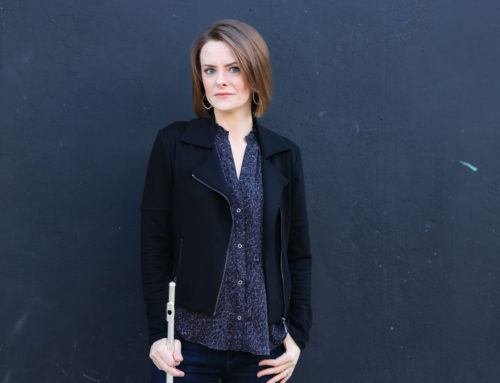Joseph Summer began playing the French horn at the age of seven. While attending the Eastern Music Festival in North Carolina at age thirteen he was fortunate to be allowed to study composition with the eminent Czech composer Karel Husa. Two years later he was accepted at Oberlin Conservatory, graduating with a BM in Music Composition in 1976. Recruited by Robert Page to teach at Carnegie Mellon University, Joseph spent two years teaching music theory before leaving to pursue composition full time.
In 1981, with assistance from the National Endowment for the Arts, The Tenor’s Suite, Summer’s one act tragedy based on The Tenor by Frank Wedekind was produced in Philadelphia, fully staged through a piano reduction. This lead to Summer creating the Contemporary Opera Company of America. The company, over a two year span, concentrated on producing operas by living American composers, including Summer’s own Hippolytus, with fully staged double piano reduction performances in Pittsburgh and Philadelphia.
For the next twenty years Joseph Summer concentrated his efforts composing a series of comic operas based on the bawdy stories of Boccaccio’s The Decameron. These consist of four completed works: And The Dead Shall Walk The Earth; Courting Disaster; Their Fate In The Hands Of The Friar; and Gianetta. The fifth in a projected cycle of seven: Also Known As is currently in progress.
In 2003 Summer founded The Shakespeare Concerts, which has presented more than forty compositions from Summer’s ever expanding collection of settings of the bard’s ever living texts, which he titles The Oxford Songs, (titled thus due to Summer’s support of Edward De Vere, 17th Earl of Oxford, as the likely identity of the author also known as William Shakespeare.) In addition to the individual scenes, sonnets, and songs from Shakespeare collected in the aforementioned collection, Summer completed the opera Hamlet, in 2006; and is currently finishing a chamber opera setting of The Tempest.
Besides his vocal compositions; Summer’s works include chamber music and a concerto for the instrument of his youth: French horn: The Silver Swan, which won the 1980 National Federation of Music Clubs’ Orchestral Composition Contest. Recordings of Summer’s music are available on Albany Records and Parma. His previously released recordings include settings of Shakespeare for voice and piano on What A Piece Of Work Is Man; voice and sundry chamber ensembles on Shall I Compare Thee To A Summer’s Day (which also contains the string quintet Dance Of The Mechanics); voice, piano, and cello on So Many Journeys (which also includes Summer’s cello sonata: Twenty Variations on a Theme from the Hebdomad); and most recently: The Garden Of Forking Paths, his string quartet based on the short stories of Jorge Luis Borges.
Give the Composer on Fire podcast a Rating and Review!
In this episode Joseph Summer discusses how to use non-profit 501(c)3s as a vehicle to produce concerts of your own music and more!
Topics discussed include:
- Meeting and studying composition with Karel Husa
- Counterpoint
- The Shakespeare Concerts
- Producing concerts as a vehicle for your own music
- Forming 501(c)3s to produce concerts
- Fund raising
- Leaving academia
- Making the music happen
- Paying performers
- Professional jealousy
Website:
Recommended Listening:
Recommended Reading:
This post contains affiliate links.




